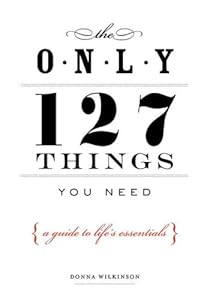Peter Heller is a great writer, plain and simple.
Storyteller and poet, he really digs in to the emotional landscape of his
characters. He knows what motivates them, and helps the reader to experience
them from the inside. Almost to an overwhelming degree.
For those who don’t know Peter Heller, he writes very
stream-of-consciousness, which quickly spirals into stream-of-dialogue,
stream-of-grammar, and
stream-of-whatever-the-Heller-feels-like-writing-at-the-time. His style does
take some getting used to, but over all I like it. Those who have achieved
mastery of the English language, and truly understand it, have a right and a
duty to smash it too pulp and build something new from the ruin. Language is
always being reinvented unconsciously, so why shouldn’t the masters reinvent it
consciously? This is what poetic license has always represented in my
mind—playing with language—and I love when prose is proven a malleable thing,
like any other human creation.
There are obvious comparisons being made between this book
and Cormac McCarthy’s The Road, and I have to admit that I was wondering if
reading this would feel redundant, but there were enough differences to make me
happy I read it. The primary difference, other than a more dynamic flexibility
in literary style and emotional exuberance, is the way the world looks through
Hig’s eyes. He’s much more optimistic, he still struggles morally (McCarthy’s
character’s—the father’s—orientation to the world is pretty-much mineralized
into deeply-set convictions and instinctual reflexes by environmental
hopelessness), he is looking for new love, he still has conversations with
himself (the internal dialogue of McCarthy’s man is minimal and all but
smothered by anguish), and he is still able to connect with nature (though, to
be fair, the nuclear holocaust of McCarthy’s world—versus the flu epidemic and
global warming of Heller’s planet—leaves a lot less flowers to stop and smell). This doesn’t mean that I liked Heller’s character better,
but I was happy for a change from McCarthy’s protagonist’s motives which
stemmed mostly from animalistic survival and procreative instinct which
included his son’s welfare.
HOWEVER, while I like most of what I read from
Heller, I was absolutely turned off by Heller’s sex scenes. I’ll admit that I
generally don’t relish hearing other people—especially guys—talk about their
latest sexual capers, but Heller’s description of Hig’s sexual encounters and
his poetic descriptions of hard-ons, oral sex, and orgasms seemed to be an
interesting—not really—infusion of erotic romance and voluptuous aesthetics
into an otherwise rugged, elementally tempering narrative. Not to say that
there shouldn’t have been a development or flowering of the finer
sensibilities—intellectual, emotional, and sexual—because I do believe that was
part of the redeeming value of Heller’s more aesthetic and emotive style, but
the writer’s insistence on fully exposing the more euphoric organ-play of two
of his characters seemed a bit too tender and over-exposed. I’m sure we all have
our spectrum of how much we want to hear about each other’s most intimate
moments, but I’m of the opinion that, in this case, the more graphic opening of
the carnal delicacies, in a setting as vicious, hostile, and unforgiving as this story, feels uncalculated and gratuitous. Or maybe it felt mostly like
poor timing. (This coming from a guy –me—who has read 50 Shades and recognizes
that erotica has a place in all world literature, even in the Bible). I
wouldn’t have minded an outline or an allusion to the encounters, but full-on
play-by-plays of giggling, licking, fingering, ejaculating…. c’mon! It’s like
someone recounting their night of crazy sex in sensuous detail over donuts and
coffee. We get it, you’re a horn-dog! Is it too much to ask NOT to have vicarious
story-sex right now?!
Moving on.
Hig’s inner conflict is between surviving, and loving. His
dubious friend, Bangley, represents an iron-clad fortress into which no one
walks without being first invited. He shoots first then asks questions. Hig
wonders about the consequences of this kind of life. “”Never ever negotiate. You are negotiating
your own death…[but] Follow Bangley’s belief to its end, and you get a ringing
solitude…the cold stars.” He waffles between the extremes of defense and vulnerability,
and this really makes the story because it forces readers to look inside
themselves at a similar struggle between love and vulnerability. The real
complication comes when Hig still has to live and make decisions, regardless of
whether or not he has come to a firm decision.
“Well, anyway Hig, whether you are a good man or a bad man,
or just a pretty good man in a fucked up world, you are going to have to land
the Beast first. Put her down in a rolling rocky county with one road that is
no longer a road.”
Don’t we all, Hig, don’t we all.
Best line from the book: “We should have all paid more
attention to the Left Side [of the Bible] I am thinking now. The Wrong Side,
the Side Where Shit Goes Really, Really Wrong.”


